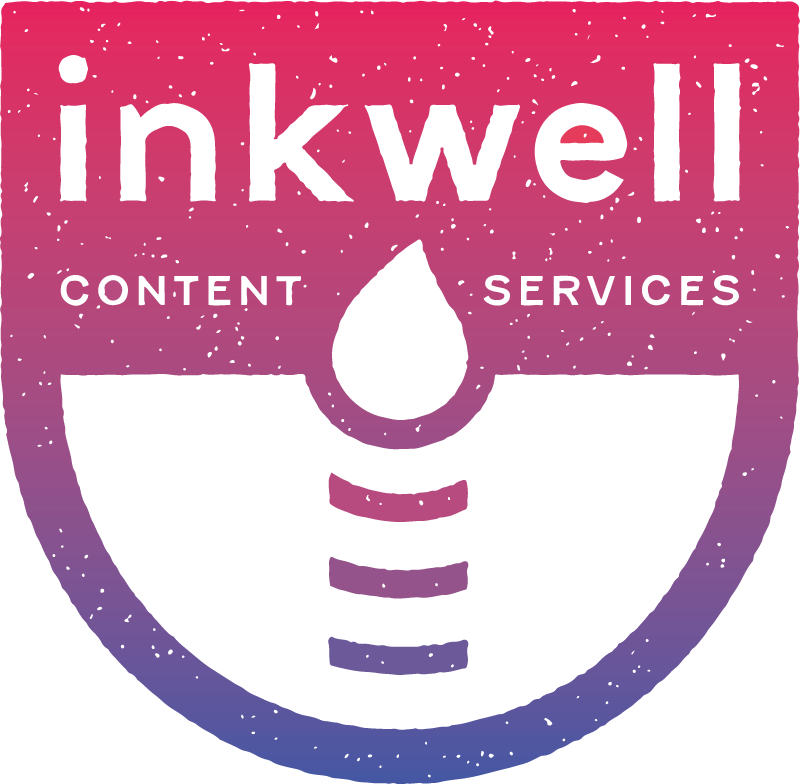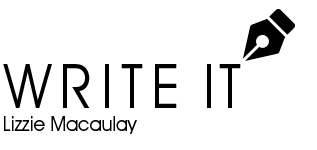
05 Aug SAVE YOUR SANITY: Liam Carnahan
I’ve been following Liam Carnahan from Inkwell Content since I started up Write It!. Every post, and every word of his I’ve ever read has sparked serious head-nodding and numerous ‘aha’ moments! What I wasn’t prepared for, and what I didn’t know, was that the day I would bolster up the courage to reach out to someone whose work I’ve admired for a long time, and let them know how much I appreciate their work, was the day I’d learn one of the most important lessons of all…
Mastering your workload.
Liam showed me his weekly planner and I just knew I couldn’t let him go without sharing all the juicy goodies with you. So here’s how our interview went…
If you’d like to get in touch with Liam, you can follow him on LinkedIn or head to his website: Inkwell Content.

TRanscript
Lizzie 0:00 Hi everyone and welcome to the very first interview in our Save Our Sanity series. The series for saving time getting s**t done. As we all need that as small business owners today. We have an amazing guest. Our guest is Liam Carnahan, and he is a content strategist, all the way from the other side of the world. He is in New England. Hi Liam How you doing?
Liam I’m good. How are you, thanks for having me.Lizzie
Hey, no problem. Why don’t you tell us a bit about yourself?
Liam Yeah, sure. So I’m Liam, like you said, I’m a content strategist. I run Inkwell Content, which is a basically a catch-all service. So I do everything from building really robust content strategies for small businesses. I also do SEO content so I’ll write content that you know helps people improve their rankings on Google or connect with their audience better, or just figure out what their business is trying to say.I’m a writer by trade, so usually I deal with, you know, the written word but I do all types of content as well so video podcasts, graphic design. I’ve got a whole team with me that do and produce these kinds of things. So, that’s my business. I have another business too called Invisible Ink Editing. And that is a fiction editing business as well so both of them are full freelance all the time. Like you said, I live in New England so I’m over in the States but I lived in Australia for six years, and just got back here in May to spend time while we’re in lockdown with my family.
Lizzie It makes sense. It’s a good time to bond, get back together with your loved ones. That’s an impressive CV you’ve got a you’ve been doing it for a while now, haven’t you? Liam Yeah, I’ve been working in content marketing now for about 10 years. Really kind of got into this by accident. I started in 2008. I got hired, I was just looking for a job to pay me to write. I didn’t know what content marketing was. You know, no one really knew what content marketing was back then. And that job turned out to be more or less the content arm but grew with that business learned more went to Australia really honed my skills over there working in a few agencies and then started out on my own, as a freelancer in 2019. Lizzie Nice. So cool so now you’re one of the little guys doing big things for big people though it’s fabulous.Do you enjoy the flexibility and the freedom of working for yourself?
Liam Oh my god I am never going back. Ever. No, I mean it’s a little bit of a downer because my plan was to spend all 2020 traveling and, obviously, anyone who’s watching this knows that’s not possible, so I’m a little bit sad but being able to put my own schedule to take time off on the weekdays or whenever my family wants to hang out, work when I feel like it. And more than anything else working less. When I was working when I was chained to a desk is really good. Lizzie And whenever you like, and in your PJs if you really want to. It’s kind of good! Liam Yup, exactly. It’s really nice. Lizzie So take us through then Liam, when you first started, what did it feel like? Was it a little hectic or were you like super organized from the get go? Liam So, this is like my second try at freelancing. My first attempt was back in 2012. Um so eight years ago now and that was when I started my fiction editing company Invisible Ink Editing. And I am not embarrassed to say I failed. It was not. I was not a good freelancer. I did all the things wrong. I didn’t know how to manage money or manage my business. I didn’t know how to set boundaries with people. So you know when somebody called me up and said let’s go get a cocktail, I would go do it even if I didn’t have the time because I thought I’m a freelancer, um, you know the discipline wasn’t there. I was much younger and had not very much experience with running a business, and also a lot of the stuff that’s available to freelancers in 2020, just didn’t exist in 2012. So, this time around, I completely changed my approach, and I decided this time I’m going to do it right, I’m gonna get. I’m gonna have all the tools and everything that’s going to be organised so that I can live a better lifestyle. Lizzie 4:48 Absolutely because you want to do the old work to live not live to work situation is getting the balance right isn’t it, don’t go into business to like kill yourself working, I guess. Liam 5:01 Yeah I’m anti-hustle culture. I like want to work as little as possible for the most amount of money as possible. I’m not one of those people who says I you got to put in 12 hours a day every single day. No, I’m never going to be that guy. I never have been that guy. So my goal when I started out this time was, how can I maximize my time and my, my processes, so that I can work like three or four hours a day, and I’m doing pretty well, Lizzie 5:28 I’ll bet. So that was that was really the point of difference for you that that ‘change moment’ was deciding to start again. But not wanting to repeat the patterns of the first attempt? That pretty much sum it up? Liam 5:43 Yeah, exactly. I just thought, you know there have been a lot of stress and anxiety, depression, when I had to kind of give up and go back to working full time. And I just really didn’t want to do that. So, being older, having a little bit more experience, I’m not gonna tell you my age but I’m more like more like okay I get it now like I understand what needs done in order to run a business, I want to do everything above board so that I’m not anxious about money, or anything. Lizzie 6:11 It’s worth putting all those systems in checks in place, which is a perfect segue because you have shown me, just by good fortune you’ve shown me some really amazing organizational tools and the approaches that you take are just that they look calming to me. Did you want to take us through them a little? Liam 6:35 Yeah, I’d love to. So, calming is the right word. That’s like my main goal in life is to be relaxed. I’m just not interested in anything [stressful]. And that means, always knowing where everything is. And what’s happening next, which is really hard as a freelancer. You don’t have a boss who’s reminding you that your meeting is at this time. You don’t know anybody really doing accountability for you, except for yourself. So I just have come up with a process that works for me. I’m not gonna say that it will work for anybody out there. Everybody will have to have their own process.But I have some strategies that are going to be useful, no matter who you are. If you’re somebody who’s like stressed all the time or missing stuff like you forgot to send an email or you missed a meeting. You know, these kind of strategies can can really help.
Um, I think the first thing I would talk about and the one that a lot of people kind of look at me funny when I say it, but I time, everything I do. I literally time everything I do. I have a timer running right now on the other screen. I set a timer when I’m updating LinkedIn. I set a timer when I’m answering emails. For me, if you were looking for a good timer or if you’re in Australia or New Zealand, I can’t recommend Rounded more. Just rounded.com.au. It’s a freelancer service that does, you know, it’s about $12 a month or $16 a month I can’t remember. Not much, but it does everything. Invoicing, you know, you can manage your clients you can see all your income and your output. Having a system like that, I’m about to switch over to QuickBooks, because unfortunately Rounded hasn’t come to the States yet. It is someday maybey but for now I can’t use it but I think a system like that, and log in every day and feel really comfortable. But the thing I like most about Rounded is it has a built in timer where you can literally type in the project that you’re working on, assign it to a client, and then start timing.
And the reason I do that, it might sound a little ridiculous to time, like 30 seconds of answering an email, but it’s not. There are a number of reasons.
One is that I can then quote appropriately. So I know how long it takes me to write a blog post versus how long it takes me to run a meeting and prepare for a meeting.
But that’s actually not the main reason I do it. It’s not about quoting. For me it’s about having an actual concept of how long certain things take me. Because then that allows me to plan them. So if I know that I’m going to dedicate an hour to updating my own website, I can much easier fit that into my calendar in my planner if I know exactly how long it normally takes me.
If you don’t want to sign up to Rounded but you still want to use a timer, you can use Toggl. And it’s the same exact thing.
It also is really nice because I’m addicted. And so being able to look back and see, you know, I’m more productive on Tuesday, and on Fridays. That’s the fact about myself, which means that I’m planning my week. You know I know to front load on Tuesdays because I’m going to be a lot, get a lot done that day.
So having the ability on how much time certain tasks make you especially if you do a lot of the same tasks over and over. It shows you, you know, how to designate your time a little bit more. It also shows you where maybe you’re spending a little bit too much time, like, I try to spend an hour on LinkedIn every day but sometimes I look at my timer and realize it’s been three hours.
Lizzie 10:05 The social media time-suck for business people! It’s still the same thing really. Liam 10:13 It’s so real. It’s real, especially when you’re lonely freelancer, right, very easy. Lizzie 10:18 Yeah, for sure. I suppose part of that is having the discipline to hit go on the timer. Like I use, I use Toggl, and increasingly so but it’s taken me a long time to remember to press start. And then to press stop is like so basic. Still learning.. Liam 10:37 Yes, no I hear you. The Rounded one has an app and it actually notifies you when your timer is still running. If you’re like suspiciously working on something for too long, you get a notification. And it says your timer is still running.Yeah, and it is a matter of learning to hit go and do it every time. I like Toggl and Rounded both. You can add manual entries. Yeah, so if you’ve forgotten something or you realize you haven’t hit start you can just add that time in.
It is a little tedious at first but for me at least, it got really addictive. As soon I was… data. You know those beautiful bar graphs that show you how much time you work, how much time you spent online.
And then also to be able to say, okay, I feel like I didn’t get paid enough that time. you know, do the simple, you know, amount of money divided by hours spent and then you see your hourly rate. But do you have a dream hourly rate for how much money you want to make you can really tell whether or not you’re undercharging or overcharging or not charging enough. And so I don’t believe there’s ever such a thing as overcharging.
Lizzie 11:35 No, it’s true, if someone’s willing to pay it it’s not too expensive. Liam 11:45 But, I think that’s like, number one for me is like just get a hold of how much time you’re spending.The next thing I would say is, and this is by far not my own invention. It’s something that you probably have heard other people say. But the way you deal with your own goals is like the key to success, right.
So I have three sets of goals.
I have long term goals or more like an annual goal. I have short term monthly goals, and then I have daily goals.
And so with the big picture stuff, you know, that’s really more of like, I journal it. I talk about it constantly. You know I have it recorded in certain, places but it’s not like I have a certain tool for that because I kind of know what they are.
But for the monthly goals and the weekly and daily goals, that’s where tools have really helped me.
So I would say for monthly goals. I use Trello. There’s a billion and one options, but I like Trello because it’s pretty. You can drop it in oh yeah it’s gorgeous. And I basically have five boards on there I have like a one from my personal life so you know some things I need to do like go to the bank, buy a present for my mom, you know, somebody around whatever. And then I have one for all of my active plans. They have their own lists so I know exactly what the tasks are for just that month.
And then I have one for my own businesses so you know web marketing I’m going to be doing that month. And I have lists like marketing, blogging, you know, LinkedIn or social media. So I have little streams.
And that’s kind of, I sit down at the beginning of every month on the first I’ll be doing it in a couple days and I just fill that out. I spend an hour or two filling it out. I go through each client. What do they need this month? What’s coming up? Go through my content calendars, move everything onto that Trello account. And then I’m like, on the first of the month, I’m like, okay, everything that needs to do this month is now written down. I don’t need to think about it I don’t need to hold all these things in my head. They’re all there.
And then I have like a mini version of that every week, so every week, I use a wonderful program called notion.io. It’s a really, it’s a little bit of a learning curve because it is kind of very basic. I say basic, but what I mean by basic is it’s extremely customisable. You can kind of turn it into whatever you want it to be and just by…
I use it for a bunch of different things but the main thing I use it for is is mt to-do list. So, a template on there you can copy from.
And it’s just, Monday through Friday, there’s a column for each one. On Sunday night, it’s like very zen for me. I’ll sit down, usually with a glass of wine. And I just go through my Trello board.
I’ve got two monitors so I’ve got Trello on one side, I’ve got Notion on the other, though they actually integrate so you know… I do it that way. And, I basically think okay…
First thing I do go to my calendar. I get all my calendar meetings on to my Trello, but I know what days I have meetings I never ever miss a meeting. Next I go through my Trello page by page I always start with my personal stuff first because if you’re not taking care of your personal life like you don’t give go to the bank haircut, you’re going to go crazy. So straightaway schedule that stuff in.
And then I go through my clients, I get all of their tasks in and because I know how long certain tasks are going to take me, it’s very easy for me to look at my weekly planner and think okay I’ve got most of the day Monday I’m not doing anything. I’m going to put 15 items on my Monday schedule but Tuesday, my friend wants me for lunch and I’m kind of feeling tired so I’m gonna go over five things on Tuesday. And I plan it out that way so that by the time Monday morning rolls around when I wake up. I’ve already got to do lists for the entire week, and I get the wonderful pleasure of checking them off.
Lizzie 15:45 Oh, feels good doesn’t it? To-do lists are the best for that sense of achievement.
What happens then, yeah, maybe you’re just you’ve got better boundaries than me I find myself still reacting, a bit like when something new comes in, then that seems to shift my plan for the day or for the week and perhaps that just needs a bit more strong boundaries around it is that the way you would approach, new work coming in?
Liam 16:14 Well, one reason I like notion, and Trello is because they’re drag and drop, right. So if something urgent comes up, or I book a new meeting, I mean you and I arranged this meeting only a few days ago. So when I did my weekly plan, I wasn’t expecting to have this meeting. But because Notion allows you to drag and drop, it’s really easy to prioritise and say “okay well that’s a blog article. It’s not actually due until next Wednesday, so I can move that to Saturday and make room for this interview”.I also kind of, you know, don’t beat myself up if it doesn’t get done on the day that I said it was going to get done. If you look at my day weekly planner. If you look at it on a Sunday when I’m making it Mondays like this long, Tuesday’s like this long Wednesday’s like this long Thursday like this long. That’s because I know I’m more ambitious than I actually capable of, so something that I say I’m going to do on Monday. I look at you know usually I’m done working around four or five o’clock. And I say, “all right, I’m not doing that anymore. I can’t do that today. I’m gonna have to move back to Tuesday.”
So, and you know, it’s okay, as a freelancer you get to set the boundaries. But if you know how long something’s gonna take you because you’ve been timing yourself, then it’s easy to say to clients, I can get this to you on Wednesday, because you know you have time. And that’s really what this is all about…
Lizzie 17:33 Oh man, that’s so comforting. You’ve just given me a total revelation. I’m just I’m just soaking this all in. The feeling of calm that’s watshing over me just thinking about the idea of having it. You know, because it’s all in my head. I have all these timings of like roughly what I think it will take because I I’ve done it, you know, but it’s all in my head, and that’s clutter, really isn’t it? Like the thought of being able to just put it on paper and not have to think, “Okay this, this and this task is gonna take me this long and that task… Yeah, I could have that done by Thursday, and that’s going to take…” like just to have it put down and out of your head. Sounds really really good. Liam 18:19 Yeah, it is the best feeling when you are done on Sunday night and you’re like okay. You know I don’t do much on Sundays, like, that’s my day off. This is the only thing I do on Sundays. I actually look forward to it. Because I sit down. I get a, you know, I wait till the end of the night when I’m, you know, ready to go to bed almost and I just want to unwind. I get everything down and then I’m like okay the whole week is ready to go, and I just have to wake up and look at my to do list and then start. It is a really good feeling. And you’re right like that visibility changes everything. Lizzie 18:56 Ahh. I really, I have so much work to do to do the work to not have to do the work. It’s ah! Liam 19:02 Yeah. Well, you know, it’s like one step at a time. But that’s what I mean about breaking things up into small goals, like, you know, for example, on Trello, you know, my goal might be… Write a new email sequence about whatever, right. Like writing an email about dogs. And rather than putting that onto my to-do list… Like, you can’t put that into your do this right because that’s something that’s really gonna take a few days, might take a few hours, you know, and you can’t put that on. But what you can put is write one email for the email sequence. Or, look at my current email sequences and edit them for one hour. You know that’s. If you’re putting it on your daily to-do list, it needs to be something that you can do, and check off. It can’t be some big goal that’s going to take all week because then it just floats around on. It’s like, break it down until you’re like, “Okay, I can do that in 15 minutes. I can do that in 20 minutes.” And honestly, that’s the time range that most of my tasks take. Because that’s what works for me.Yeah, but it does feel better.
Lizzie 20:07 Yeah, yeah, I have some work to do. Today is pretty much the first day that I don’t have a full day of work planned in July because July has been insane. So maybe I just got myself one task for the day is to organize the hell out of August… and forever.Liam 20:24 I bet you’ll love it. So freeing.
Lizzie 20:30 Yeah, especially if you get to have a glass of wine while you’re, while you’re doing the organising. It’s like two great things in one session. Liam 20:39 I’m totally all about positive reinforcement. For me, like, wine the positive reinforcement, or alcohol in general but you know whatever it is you eat that cupcake while you do it like if you associate the treat. You know, Lizzie 21:02 So we we’re not too far removed from dogs and we just need that Pavlovian response and we’ll be, we’ll be sorted. Liam 21:10 Exactly. Lizzie 21:13 Cool! Well, I think there are some amazing tips in there I hope everybody is taking notes because I’ll be playing this back at least four times and getting all the information down. And what we’re going to do next. So today is Monday so Tuesday, we’ll have a little tip from Liam and then Thursday, we’re going to have the full blog that comes out through email and through the Innovators and Content Creators group.
So, Liam thank you so much for your time today. Your tips are absolutely fantastic. And as is your work on LinkedIn so Inkwell creations … Content. Inkwell Content. Oh dear. Yeah, my poor mushed brain.
Liam 21:54 inkwellcontent.com. if anyone wants to come say hi, or poke me on LinkedIn. Whatever it takes. I love hearing from people and.. Lizzie 22:02 Please follow him on LinkedIn because he speaks sense. Every single thing he says is useful and amazing, so keep it up Liam. Thanks so much for joining us. Liam 22:17 My pleasure, thanks Lizzie.

Sorry, the comment form is closed at this time.